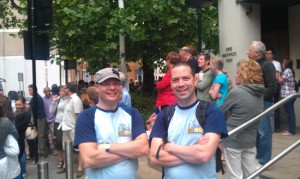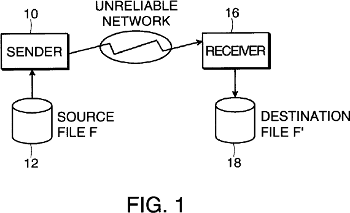I don’t usually post anything here when we do curl releases, pretty much because we do them bimonthly on a fairly steady schedule so there should be little surprise to anyone interested by the time they get public.
But hey, this is hard work and just to remind you all what’s going on I thought I’d throw in a mention of what we’ve spent the last two months doing. curl and libcurl 7.21.5 is released today.
The five notable changes introduced this time include:
The CURLOPT_SOCKOPTFUNCTION callback can now return information back to libcurl that the socket libcurl operates on is already connected. This is useful for applications that do a lot of fiddling on their own and possibly provide its own socket to start with using the CURLOPT_OPENSOCKETFUNCTION.
curl the tool got support for the –netrc-file option, that allows a user to point out a specific .netrc file instead of always forcing the user to use the fixed $HOME/.netrc one.
Brand new support for building libcurl with the cyassl library for SSL/TLS support. Previously curl only had support for the older OpenSSL emulation API that cyassl used to provide, but starting now we’re using cyassl directly and it is now a proper SSL citizen among the seven SSL libraries curl supports.
Since the previous release when we shipped the first support for TLS-SRP that required GnuTLS, the OpenSSL project accepted patches that introduced TLS-SRP into their official version as well and accordingly we have received patches that now allow users to use TLS-SRP with libcurl built against (a new enough) OpenSSL as well.
We have started to re-use two error codes a bit differently within libcurl, so that it now can return: CURLE_NOT_BUILT_IN (4) when an application tries to use a feature that was missing or was explicitly disabled at build-time and CURLE_UNKNOWN_OPTION (48) when the application has passed in an option that isn’t known or recognized.
And we’re counting more than 40 bugfixes worth mentioning. The most important ones are possibly:
If using the multi interface doing RTSP, libcurl could crash when trying to re-use a previous connection.
POP3 didn’t do TLS properly, it issued the wrong command to start TLS and it didn’t send the password correctly once it did switch to TLS!
When using the multi interface, there could be times when the timeout didn’t trigger so it wouldn’t close lingering connections even when asked to do so.
SFTP and SFP with the multi_socket interface were not working correctly and would very easily end up with stalled transfers due to the application being told to wait for the wrong action (or none at all).
If told to use the CCC command (which is used with FTP-SSL when the client asks the server to switch off from an SSL connection back to plain TCP again), curl would disable SSL on the connection but then use the wrong socket reader function and crash.
… but of course, if you’ve suffered from a particular bug in a previous release I’m sure you’ll consider the exact bug fix that corrects your problem to be the most important one!
Not to forget, the great people apart from yours truly that have contributed with code and insights since the previous release. Without them, the above list of changes and bugfixes just wouldn’t exist. The friends we have to thank are (in no particular order):
Mike Crowe, Kamil Dudka, Julien Chaffraix, Hoi-Ho Chan, Ben Noordhuis, Dan Fandrich, Henry Ludemann, Karl M, Manuel Massing, Marcus Sundberg, Stefan Krause, Todd A Ouska, Saqib Ali, Andre Guibert de Bruet, Tor Arntsen, Vincent Torri, Dave Reisner, Chris Smowton, Tinus van den Berg, Hongli Lai, Gisle Vanem, Andrei Benea, Mehmet Bozkurt
… and now back to working towards the next release. To be expected in roughly two months. Repeat.





 Thirteen years ago I released the first version of
Thirteen years ago I released the first version of 